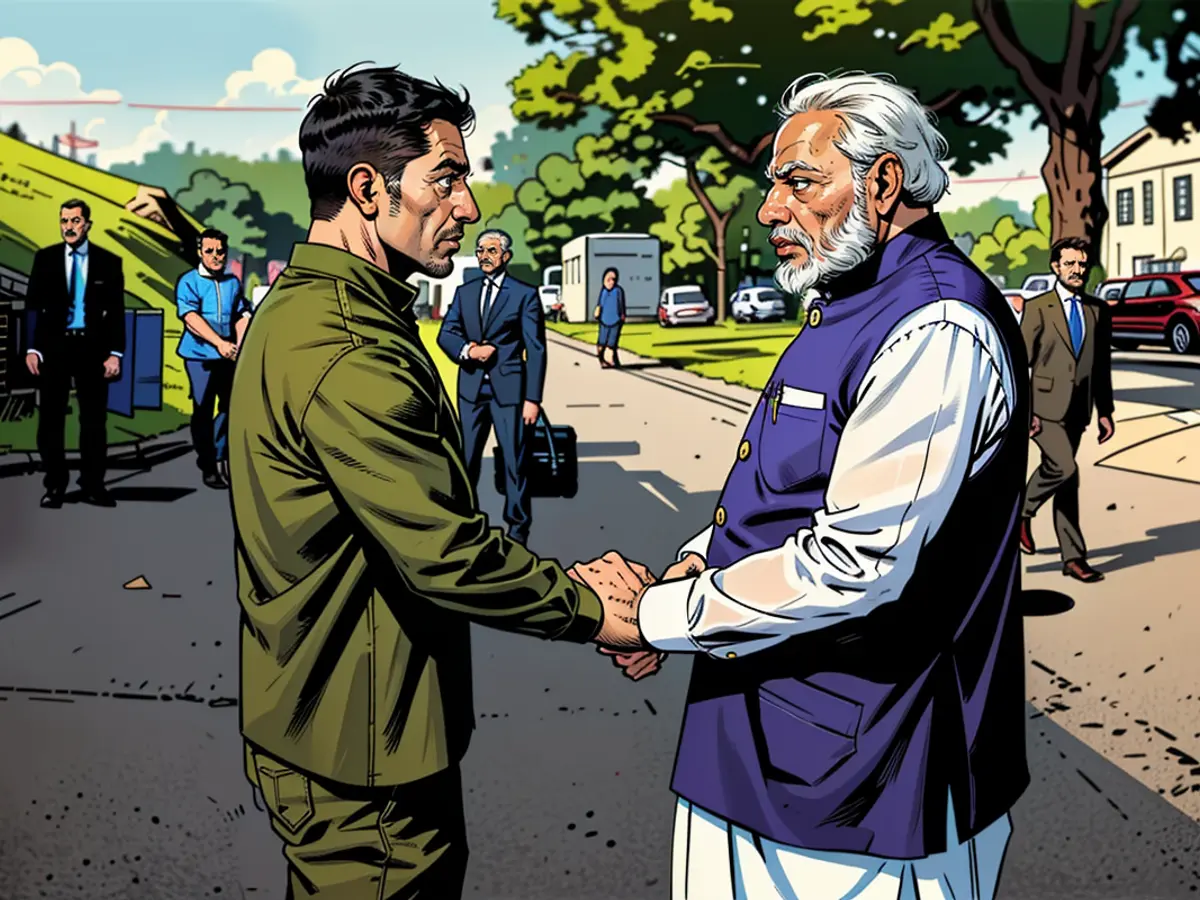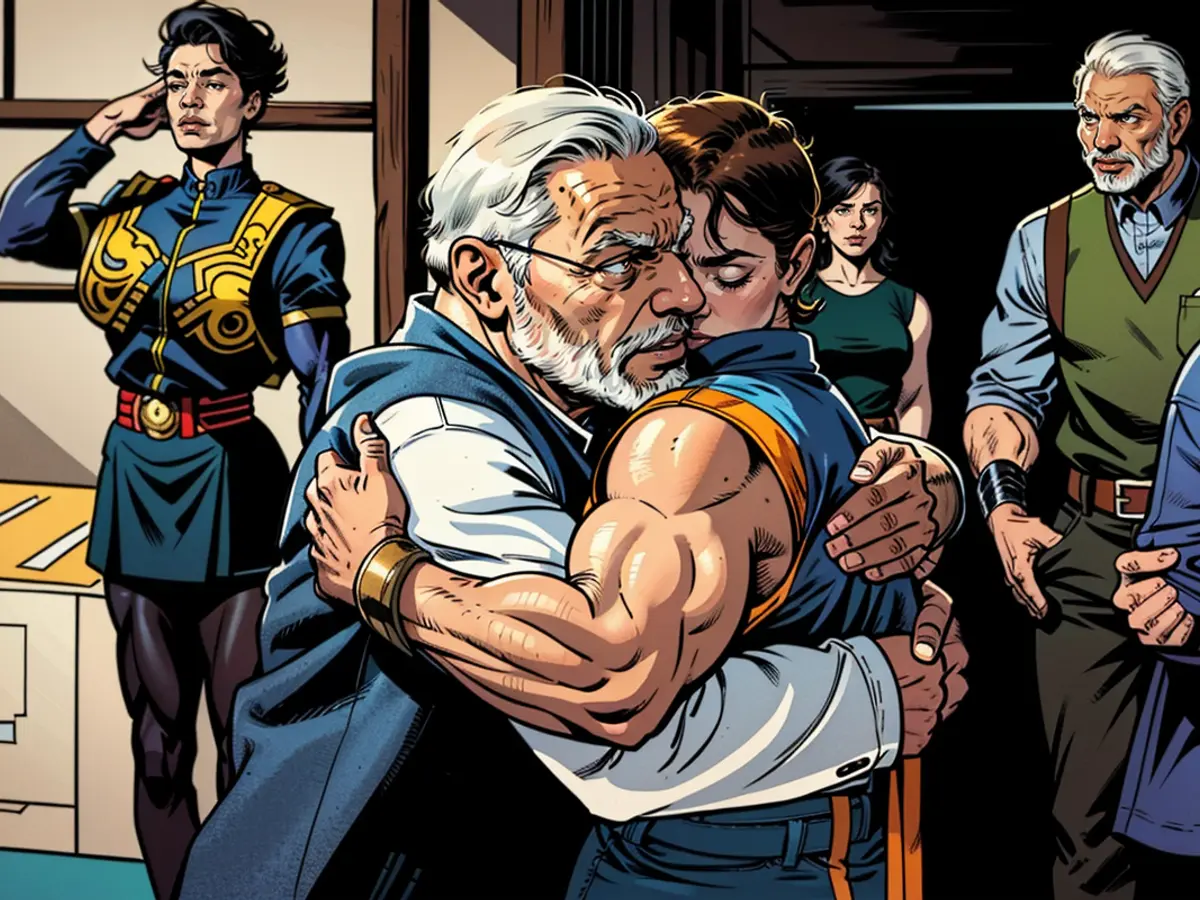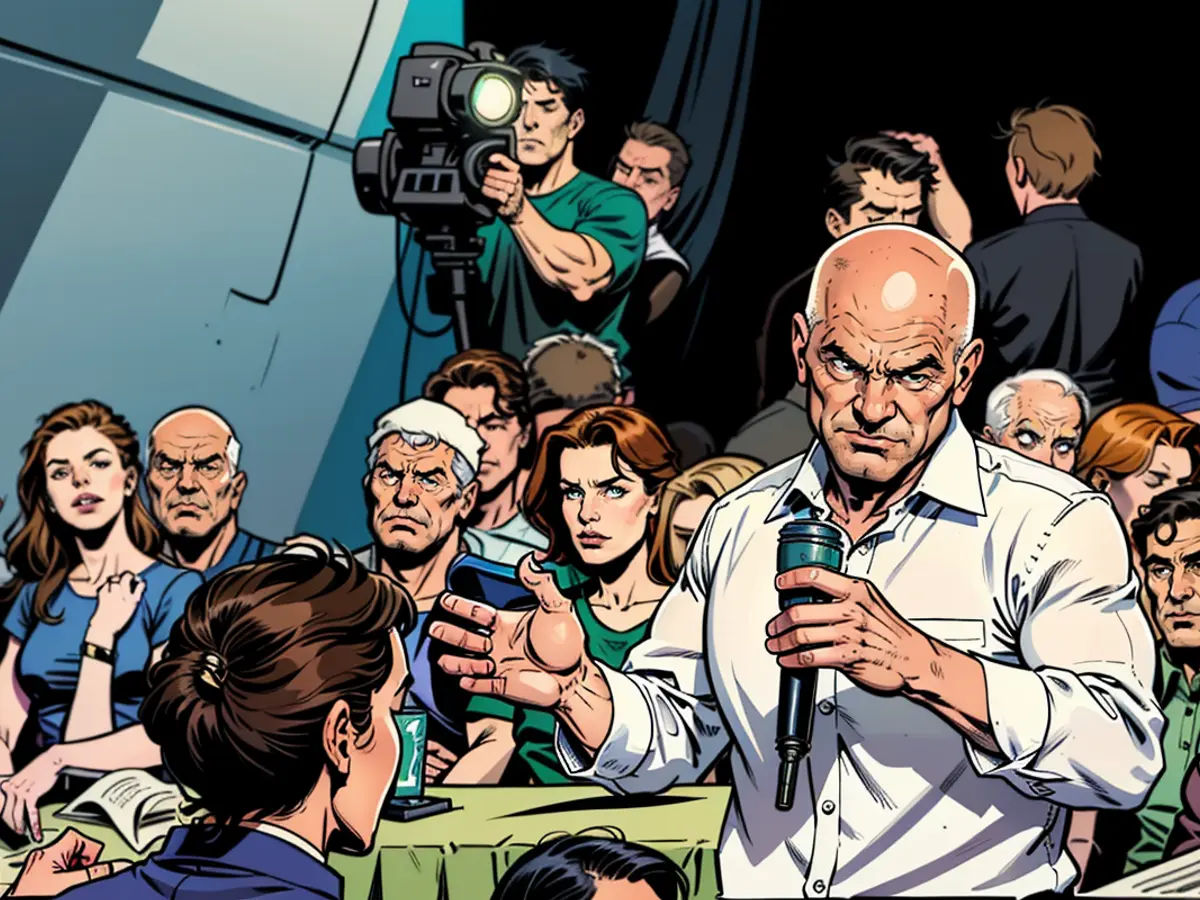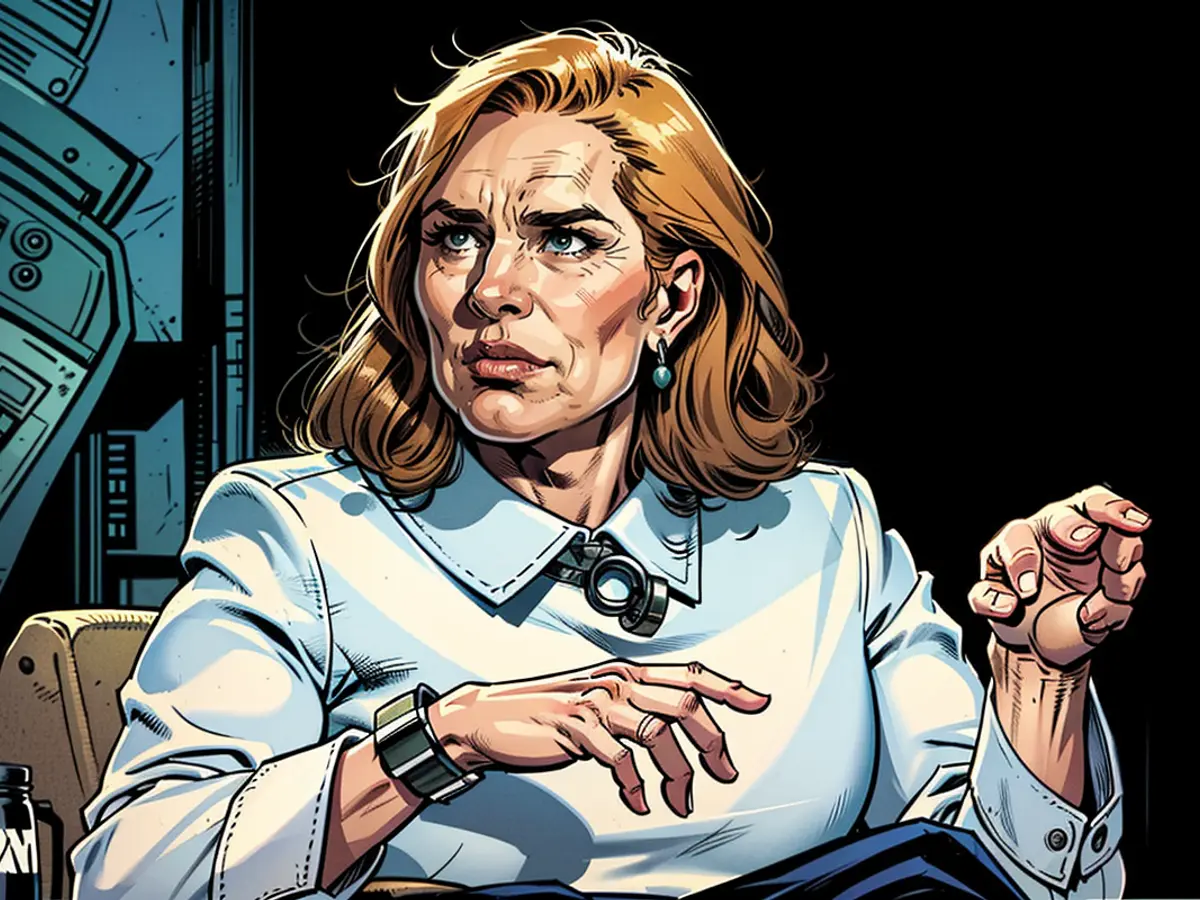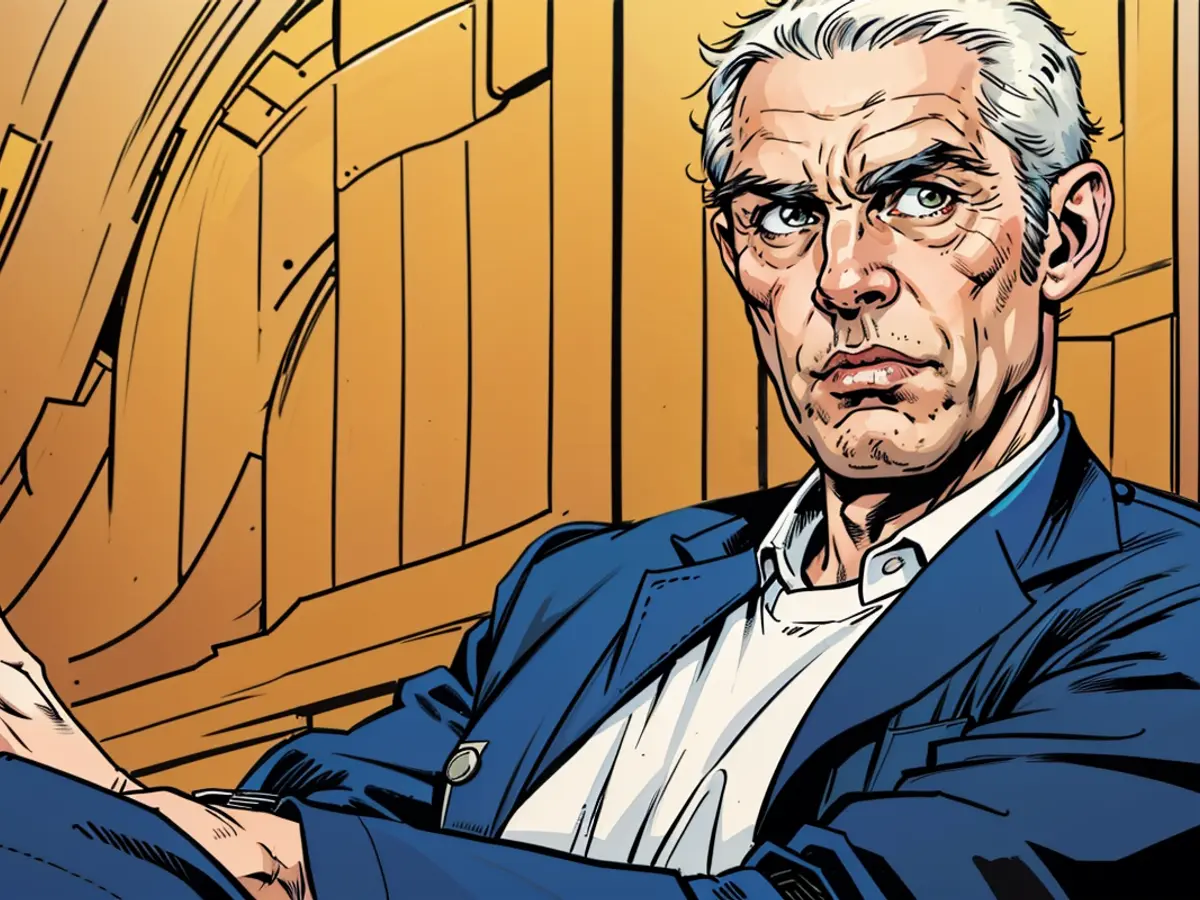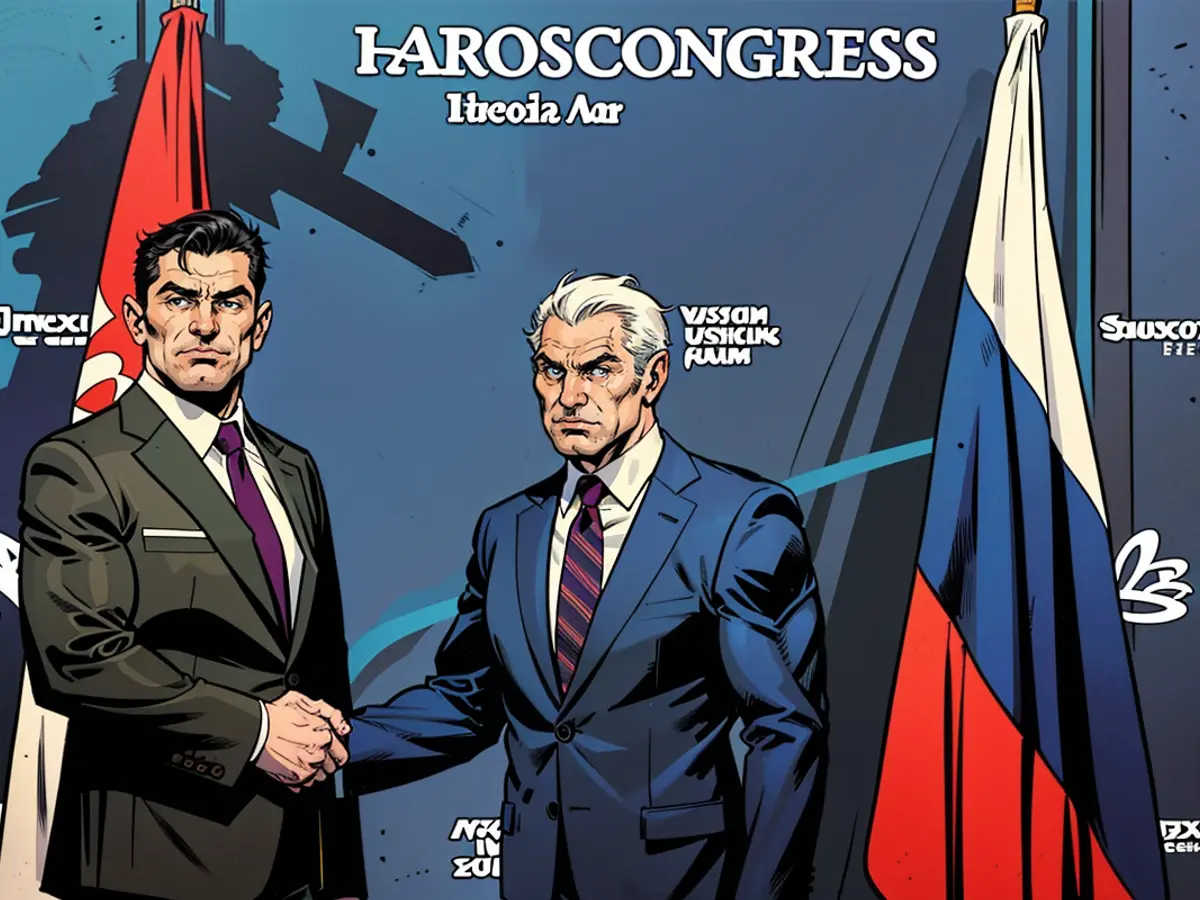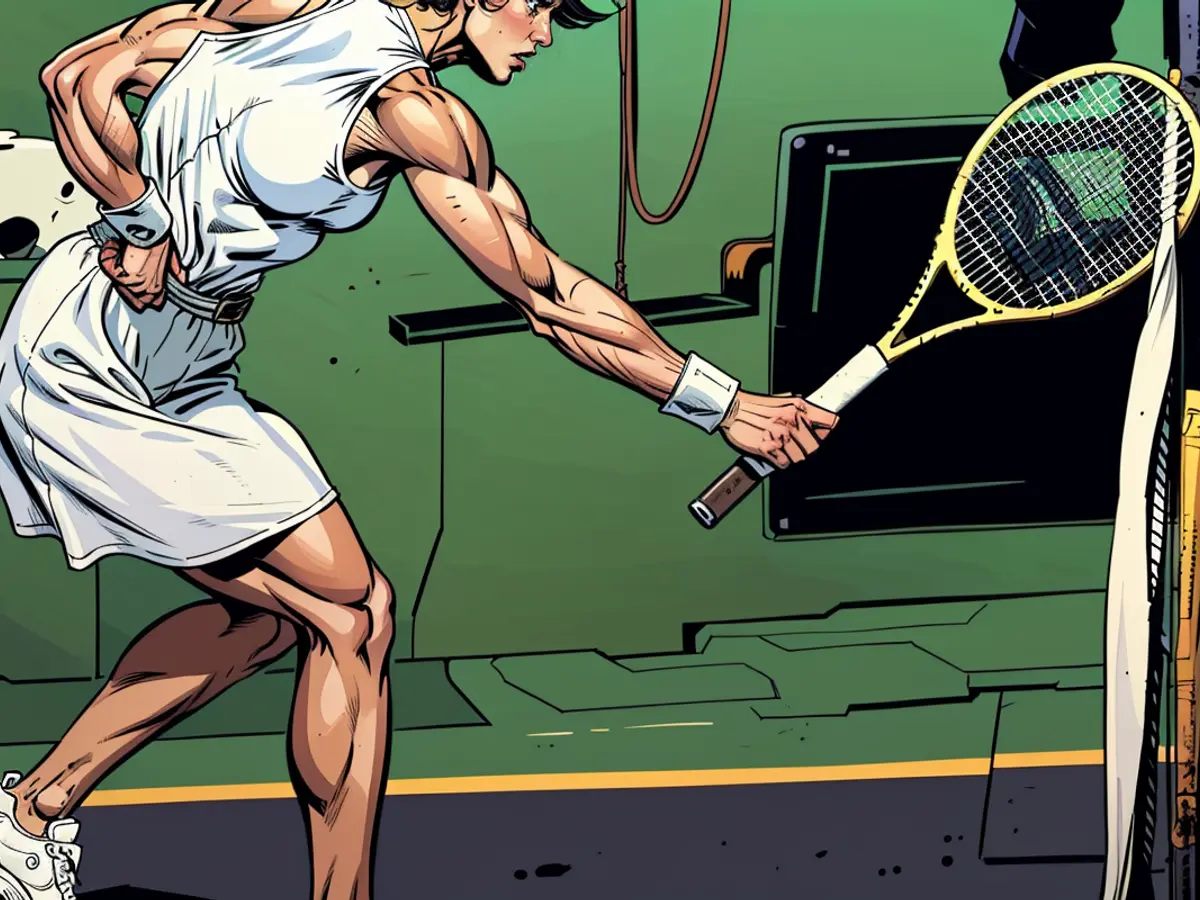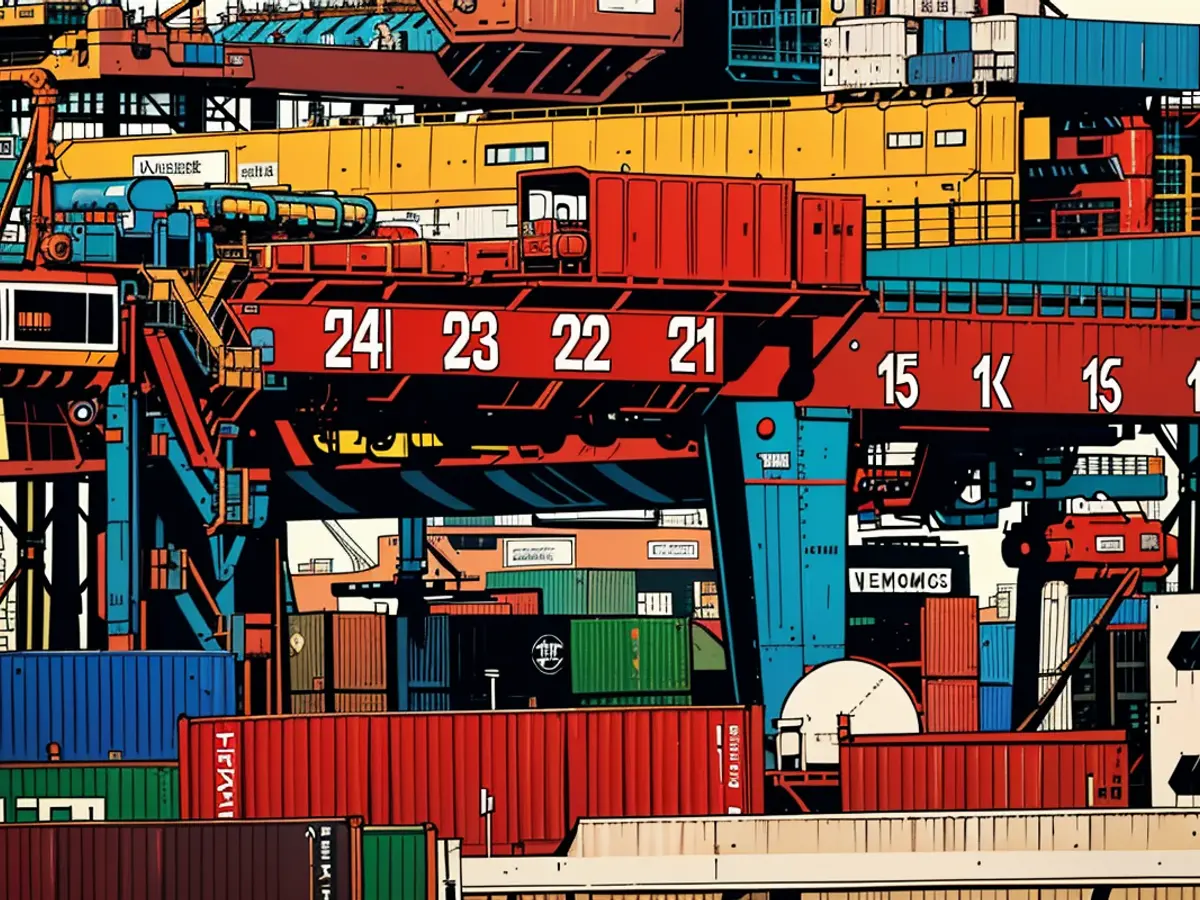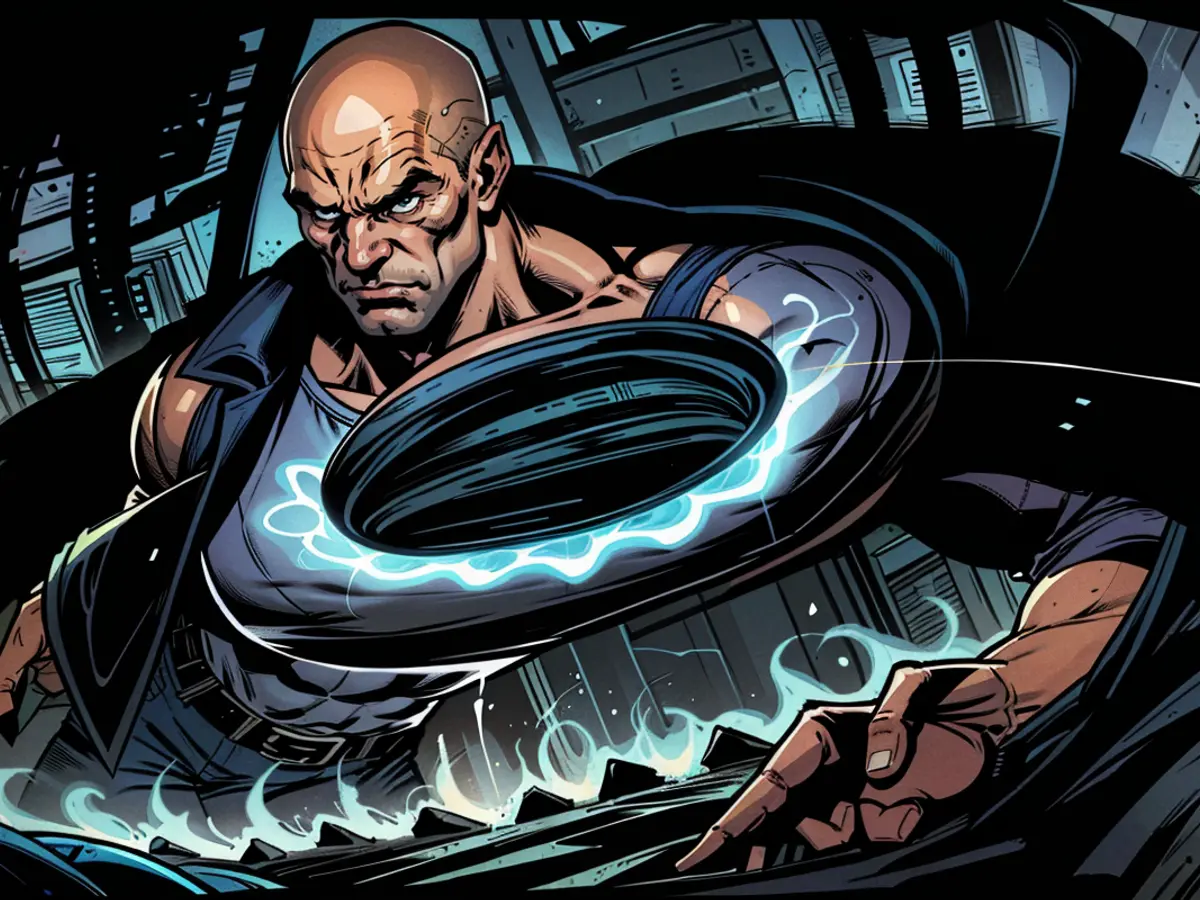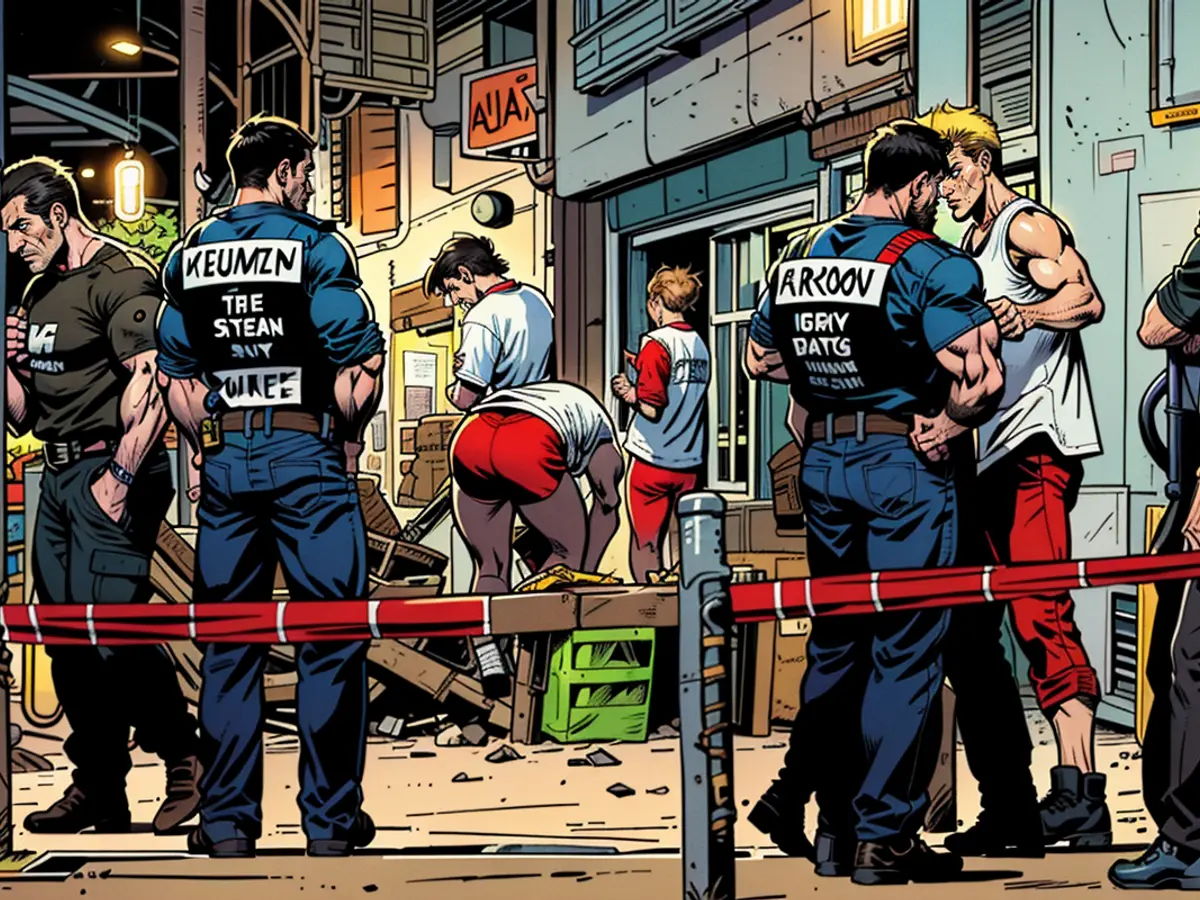- Prime Minister Modi's Embrace: Indian Leader Shares Warm Hugs with Volodymyr Zelensky in Kiev
Following his controversial encounter with Russian President Vladimir Putin, Indian Prime Minister Narendra Modi paid a visit to Ukrainian President Volodymyr Zelensky. The elderly Modi was warmly greeted by Zelensky during this historic occasion, marking the first time an Indian prime minister visited independent Ukraine.
During the meeting, Modi stressed India's dedication to peace. "We've made our stance clear, and we are steadfast in our pursuit of peace," he declared. He also pledged humanitarian aid to Ukraine.
Officially, India maintains a neutral stance in the ongoing conflict. It does not endorse Western sanctions against Russia and consistently advocates for a resolution through dialogue, although it has yet to propose concrete plans.
Modi's Embrace with Putin Sparks Controversy
Modi positioned himself as a mediator between Russia and Ukraine, expressing his desire to discuss a peaceful resolution with Zelensky. He promised that India would offer humanitarian aid and extend support beyond the usual extent to Ukraine.
Russia visited Modi in July - the first such visit since the conflict began. The trip took place shortly after Modi's re-election as prime minister, which Russian media viewed as a token of appreciation for Russian-Indian relations. Photos of the meeting, which included an embrace between Modi and Putin, spread globally, causing unease in various Western countries. Zelensky criticized Modi's association with the Kremlin at the time. However, India dismissed the criticism and Ukraine also sought India's support, recognizing its global influence.
While in neighboring Poland, Modi advocated for negotiations in the Russia-Ukraine conflict and declared that India strongly believes "that no issue can be resolved on the battlefield." During a joint press conference with Polish Prime Minister Donald Tusk in Warsaw, he reiterated that India supports "dialogue and diplomacy."
However, Modi's potential as a successful mediator is uncertain, as India has refrained from openly condemning Russia's attacks on Ukraine. The country has long-standing ties with the Kremlin dating back to the Cold War. Russia remains one of India's major arms suppliers. Moreover, during the conflict, India has emerged as one of the largest buyers of cheap Russian oil.
Impact of the Ukraine War on India
Furthermore, rapprochement between Moscow and Kyiv appears increasingly challenging, given Ukraine's offensive in the Russian region of Kursk since August 6 and Russia's push in eastern Ukraine.
Ukraine claims its advance into the Kursk region aims to compel Moscow into "fair" negotiations. While there have been no indications of serious talks to end the conflict yet, the Kremlin announced on Monday that the Ukrainian offensive has now made negotiations impossible.
During Modi's visit to Kyiv, Ukraine reported two deaths in the northeastern region of Sumy as a result of a Russian attack. Two more individuals were rescued from the rubble in the Kharkiv region after a previous attack. According to UN figures, over 10,000 civilian casualties have been recorded in Ukraine since Russia's attack in February 2022, with the actual number likely higher.
India too has reportedly been affected by the Ukraine conflict. Media reports suggest that several Indian nationals have lost their lives fighting for Russia. At the beginning of the year, India urged the Kremlin to release some of its citizens who had enlisted for auxiliary roles with the Russian army.
The European Union expressed concern over India's close relationship with Russia, given its support for Ukraine in the ongoing conflict. Despite this, the European Union acknowledged India's right to maintain its own foreign policy and its importance as a global player.
Recognizing India's neutral stance and its desire to remain a mediator in the conflict, the European Union proposed a collaborative effort between the European Union and India to promote peace and dialogue between Russia and Ukraine.
